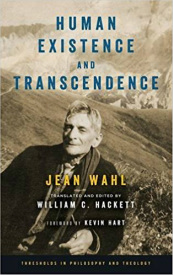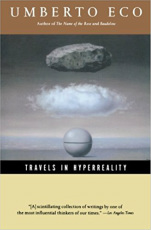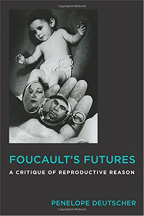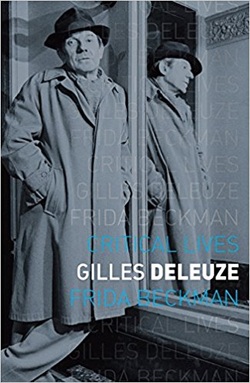
Here is a Notre Dame Philosophical Review of the work by Edward Baring.
 Jean Wahl is one of the most important figures in twentieth century French philosophy, yet he is also, unfortunately, one of the most overlooked in the Anglophone world. Here is William Hackett's translation of Wahl's landmark 1944 text, Existence humaine et transcendence. This work is based on a 1937 lecture, and deals with the concepts of being, transcendence, and Wahl's unique conceptions of 'transascendence' and 'transdescendence.' This work had a profound impact on later French thinkers of the twentieth century, and an English translation is long overdue. Here is a Notre Dame Philosophical Review of the work by Edward Baring.
84 Comments
 I recently read a very interesting piece by Umberto Eco on Thomas Aquinas, in Eco's book, Travels in Hyperreality. It's a very short piece, in which he argues that the worst thing to ever happen to Thomas was his codification by the church. In Eco's words, 'The worst thing that happened to Thomas Aquinas in the course of his career was not his death ... Nor was it what happened three years after his death, when the Archbishop of Paris, Etienne Tempier, published a list of heretical propositions (two hundred and nineteen of them) that included the majority of the theses of the followers of Averroes, ... and twenty propositions clearly attributable to him, Thomas, the angelic doctor himself, son of the lordly family of Aquino. ... No, the disaster that ruined the life of Tommaso d'Aquino befell him in 1323, two years after the death of Dante and was perhaps, also, to some degree, attributable to the poet: in other words, when John XXII decided to turn Tommaso into Saint Thomas Aquinas. ... It's the moment when the big arsonist is appointed Fire Chief.' Thomas, Eco argues, was a subversive, unique, and original thinker (it's important to remember that Aristotle was persona non grata at this point in Church history and in Christian thought, and that most of the 'heretical propositions' to which Eco refers stem ultimately from Aristotle), and what Thomas did, better than anyone, was to think through, in an original manner, all the conceptual, philosophical, and theological problems of his day. What was most impressive, Eco argues, was Thomas's originality. But once Thomas is codified by the church, Eco argues, intellectual progress in the Church more or less hit pause, as it was then believed that all the problems were solved, and there was nothing else to really do, except keep rehashing the Thomistic project. Here is an interesting piece by Abeba Birhane, in which she argues, against Descartes, that our sense of self is necessarily mediated through our relations to other human beings. One particularly interesting moment is when she points out that prisoners in isolation begin to lose their own sense of self: 'Deprived of contact and interaction ... a person risks disappearing into non-existence.'
It reminded me of Derrida's rich analyses in Voice and Phenomenon, where he argues, through Husserl's model of the living present, that the self relates to itself only as if to an other, even in our most seemingly interior and private moments. Even our self-relations, in other words, are relations to alterity. 'The self is a relation which relates itself to its own self...' - Søren Kierkegaard  Penelope Deutscher's recent book, Foucault's Futures: A Critique of Reproductive Reason, is here reviewed by Colin Koopman from the University of Oregon.  I just picked up Beckman's new book on Deleuze, in Reaktion's Critical Lives series. Beckman characterizes the book as 'a critical effort that endeavours to illuminate some fruitful dialogues between Deleuze's life and work.' I have so far skipped around in passages throughout, but the book looks to be a remarkably important contribution to Deleuze scholarship. Part-biography, part-critical introduction, she manages to, in 125 pages, examine most of the key moments in the evolution of Deleuze's thinking, demonstrating an astonishing facility with the overall history of Deleuze scholarship on many of the most important debates. I can't wait to read the rest of the book more closely. In this recent Aeon piece, Costica Bradatan dips into the ongoing debate about the extent to which art can actually do philosophy. He argues that, regardless of their adherence or lack thereof to any technical definitions of philosophy, films 'can have on us the same effect that the great, perennial works of philosophy do: shake and awaken us, breathe new life into our minds, open us up to new ways of seeing ourselves and the world around us.'
The orthodox rebuttal, of course, is that unlike philosophy, art does not deal in arguments. Indeed, as many artists will explicitly assert, not only does art not make arguments, but when it tries to make arguments, more often than not, it ends up being bad art. The more didactic it is, the weaker it is artistically. |
HOMEPAGEAuthorVernon W. Cisney is currently an associate professor of interdisciplinary studies and Jewish studies at Gettysburg College. Archives
January 2023
Categories |